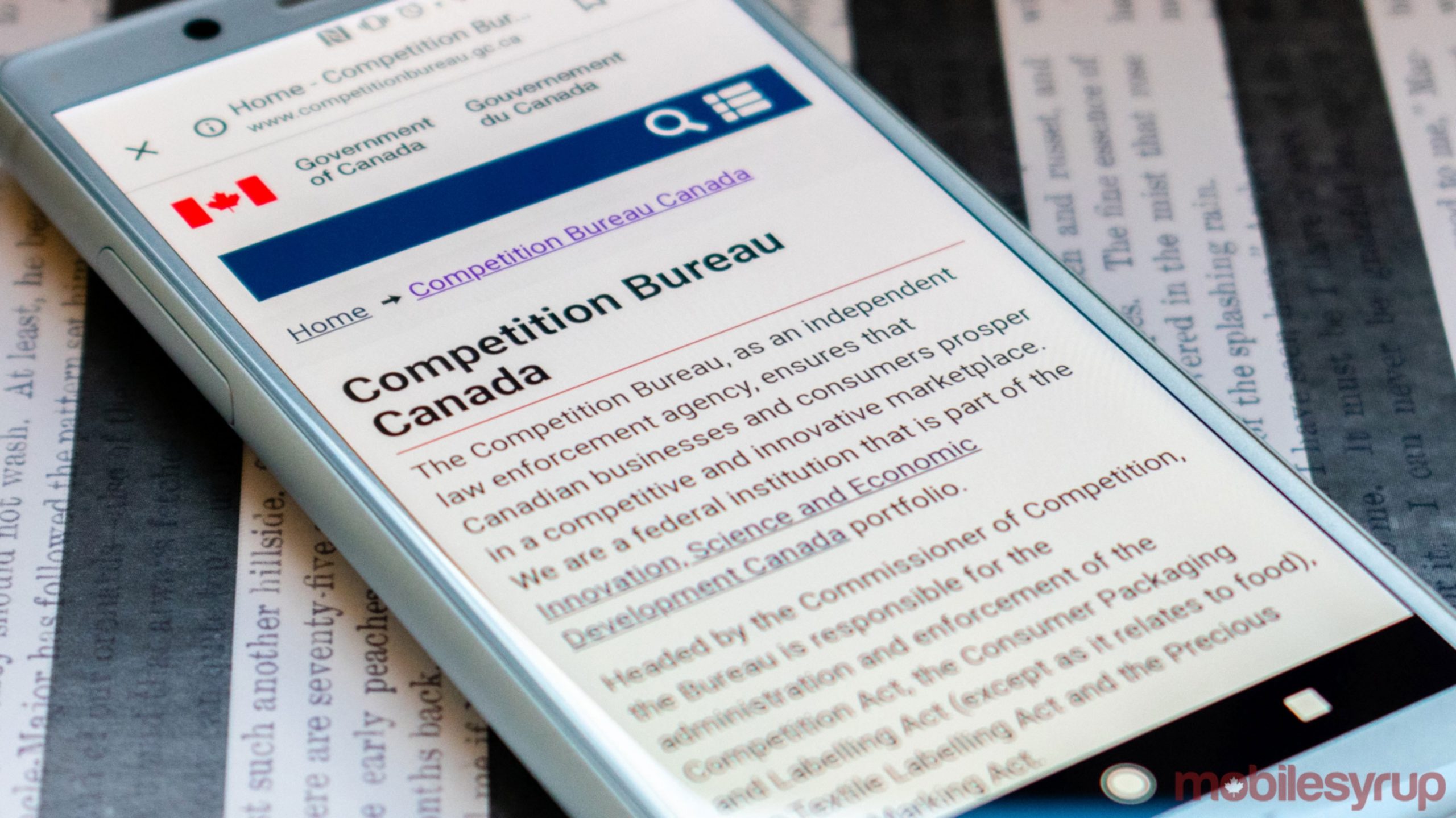
Canada’s Competition Bureau says Canadians could save more money on their cellphone bills if Bell, Rogers and Telus had more competition.
The finding comes as part of the Bureau’s final submission to the Canadian Radio-television and Telecommunications Commission’s (CRTC) on-going review of mobile wireless services.
The CRTC’s review is looking at the state of Canada’s mobile wireless network. Further, it is investigating whether Wi-Fi first mobile virtual network operators (MVNO) should have mandated access to the networks of Bell, Rogers and Telus — colloquially called the ‘Big Three.’ The review is also considering whether regulatory measures are needed for the deployment of 5G in Canada.
Despite the recent introduction of unlimited cell phone plans, the Competition Bureau said that if the Big Three faced more competition from regional carriers like Freedom Mobile and Vidéotron, Canadians would save more money.
Specifically, the Bureau’s analysis found that prices “can be more than 50 percent lower for all cell phone users in markets where there is strong competition from regional carriers.”
Additionally, the Competition Bureau found that these savings are more significant than what some customers may have saved with unlimited plans.
It’s worth noting that none of the Big Three offer truly unlimited plans. Bell, Rogers and Telus all offer customers a set amount of high-speed data followed by throttled usage of up to 512Kbps max speed after subscribers go over their high-speed allotment.
“Canadians now more than ever rely on their wireless services to work, learn, shop for essential products and services, and connect with friends and family,” said Matthew Boswell, Commissioner of Competition.
“Our recommendations in this proceeding provide an evidence-based approach to increasing competition. Effective competition is key to delivering lower prices, more choice, and high-quality networks.”
The Competition Bureau recommended that the CRTC pursue an MVNO policy that would have the Big Three sell temporary access to their wireless networks to regional carriers that plan to invest and expand their own networks.
According to the Bureau, this model would represent an incremental and time-limited policy that incentivizes expansion of regional carriers so they can offer lower prices and more choice for Canadians.
The Competition Bureau’s recommendation comes on the heels of several reports claiming mandated MVNO access would have negative impacts. A recent PwC analysis commissioned by the mobile industry and released by the CWTA would lead to an “unhealthy” telecom industry. Further, the Big Three’s recent submissions to the CRTC review claimed the negative impacts of mandated MVNO access would be more significant due to the ongoing pandemic.
However, with Canadians relying more on wireless and wireline services for remote work, communication and other essentials, greater competition, choice and affordability could be precisely what people need.
Source: Competition Bureau
MobileSyrup may earn a commission from purchases made via our links, which helps fund the journalism we provide free on our website. These links do not influence our editorial content. Support us here.


